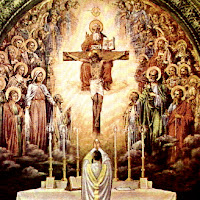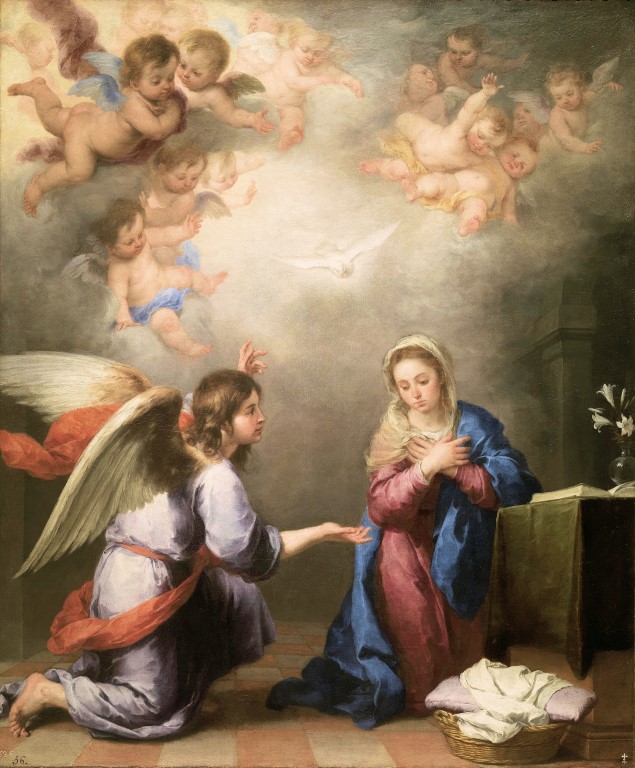Manifold benefits of the Mass
 Every Mass that is offered is of infinite value in that the Mass gives adoration and thanksgiving to God. Every Mass is also offered for the propitiation of our sins, and to gain God's gifts for us. In these respects, the fruits of the Mass is limited by our capacity to receive these benefits.
Every Mass that is offered is of infinite value in that the Mass gives adoration and thanksgiving to God. Every Mass is also offered for the propitiation of our sins, and to gain God's gifts for us. In these respects, the fruits of the Mass is limited by our capacity to receive these benefits.The sacrifice that is offered is the once and for all perfect sacrifice of Jesus Christ. The Mass is primarily the actio Dei, the work of God himself. However the priest is called by God to participate in this one perfect sacrifice by worthily celebrating the sacred rites. The priest offers the Mass ministerially and the Church generally. The faithful also offer the Mass by participating in it: by requesting the celebration, by making an offering for that purpose, by providing the material requisites for offering the Mass, and, most of all, by attending the Mass and uniting themselves spiritually to the sacrifice. These actions of the faithful constitute their "actuosa participatio" - an expression that is often unfortunately rendered as "active participation". It would be better to talk of "genuine participation" to avoid giving the impression that you are not "participating" in the Mass unless you are doing a job or reading all the words in a book.
Some effects of the Mass are applied to God: adoration, praise, and thanksgiving. Other effects (or benefits or "fruits") are applied to us: the imploring of God's generous gifts, the propitiation of His wrath and the forgiveness of our sins, and satisfaction for our sins with the remission of the temporal punishment due to them. All of these effects flow from the Mass as the perfect sacrifice of Christ.
This perfect sacrifice is efficacious in pouring forth benefits or "fruits" as follows:
1. To the all the members of the Church, living and dead, who do not pose an obstacle to this grace - the general fruits of the Mass.
2. To those who participate (as outlined above) in the Mass - the special fruits of the Mass.
3. To the priest himself - the "most special" or personal fruits of the Mass.
4. To the person for whom the Mass is offered - the ministerial fruits of the Mass which the priest may apply for an intention that has been requested, for the people of the parish, or for any other proper intention of his choosing.
In addition, to the perfect sacrifice of Christ, the prayers and good works of the whole Church are applied through the Mass.
Finally, the personal prayer and devotion of the priest is efficacious in proportion to his own holiness. This personal prayer can be added as a secondary intention to that for which the Mass is offered by way of the "ministerial fruits". Hence the prayers in the previous post about the mementos.
(In the above, I have mainly summarised JB O'Connell's excellent treatment in chapter 4 of his book "The Celebration of Mass".)


